
Every young person has to make life-changing decisions about their sexual and reproductive health. However many of them cannot access clear, evidence-based information. IPPF's comprehensive sexuality education programmes enable young people to make informed decisions about their sexuality and health, while building life skills and promoting gender equality.
Articles about Comprehensive Sex Education
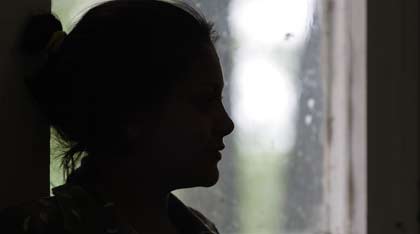
Options: Maya contemplates abortion
He seemed so nice, I felt excited. I never thought he would push me to the ground and pull my underwear down. I should have fought harder, but he was so strong. He was hurting me so much – I was just crushed. I wish I had said something to Mama straight away but as the time passed it became harder to talk about it so I told no one. My friends would have said it was my fault – I always said I fancied him. Mama and Papa would never understand or support me. Mama found my diary and read it. The hardest thing was figuring out what to do. We were both confused. She had heard of a woman who helped girls like me to get an abortion. We went to the woman’s house, it was dirty and she was not friendly to us – just asked if we had money. Mama didn’t like it so we left. She said it didn’t look safe and it would be bad for me to be seen there. She decided that we would go to a clinic in the next town so no one would know me. I felt scared. Because I had left it a long time the nurse told me I was 17 weeks pregnant. She then went through all the options with me. It was a lot of information to take in, but I felt like it was my decision and the most important thing was I didn’t feel ready to be a mama myself. It was quite a long medical check up with lots of embarrassing questions. I don’t remember much of what happened next. I was quite scared. I had an injection so I don’t remember anything until it was all over. The nurse came to talk to me about contraception. Then I had an STI and HIV test and that was ok. It still shocks me when I think about all that has happened. I am sure that I made the right decision to have an abortion. It let me get on with my life and studies.
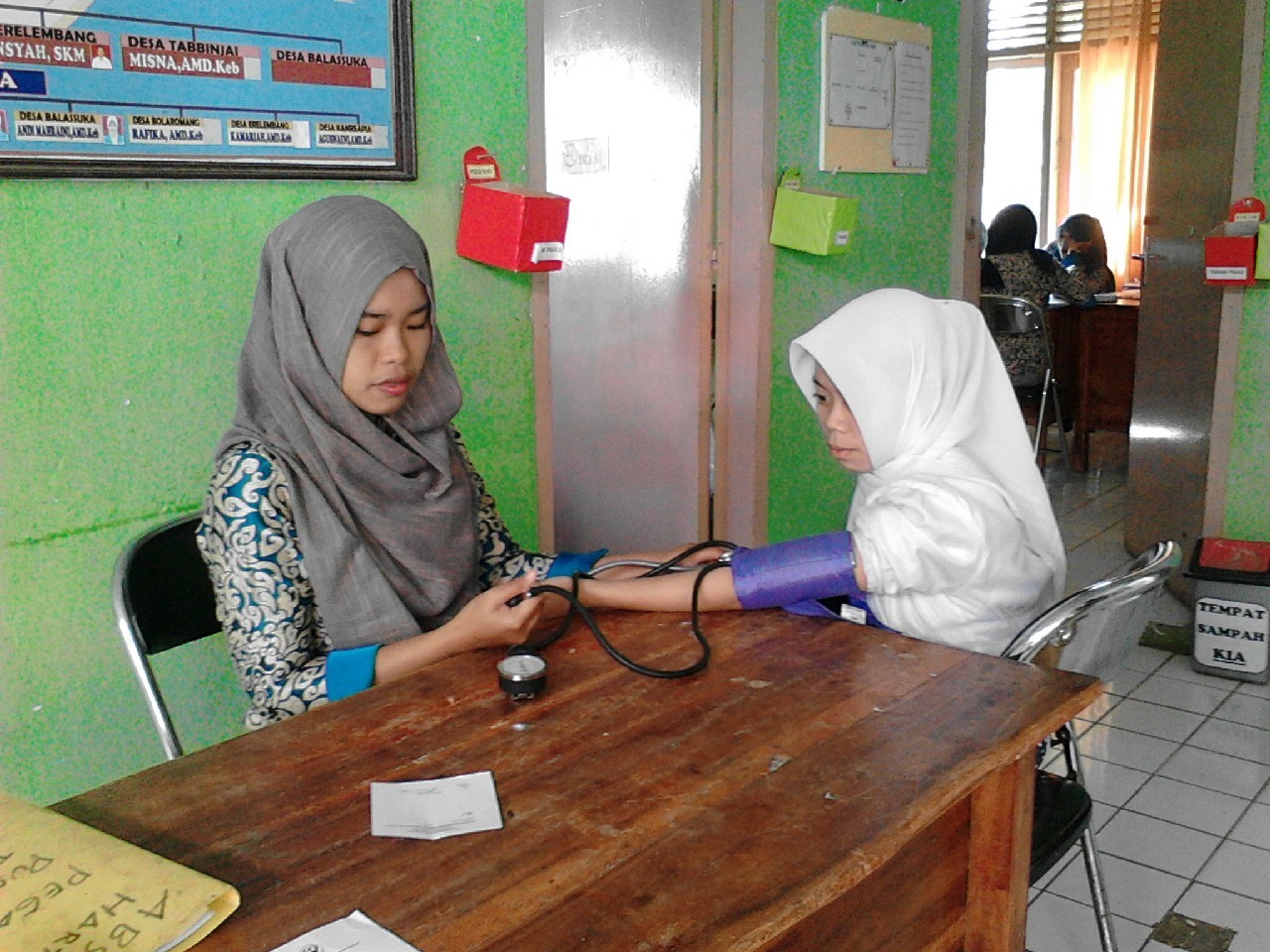
World Health Assembly hears from Ima: “There’s much more to being a midwife than delivering babies”
Ima, 24, a recently qualified midwife from Indonesia, is a panellist in the Global Dialogue for Citizen-led Accountability for Women’s, Children’s and Adolescents’ Health at the World Health Assembly this week. Here Ima talks about the special challenges of working in rural Gowa district in South Sulawesi , Indonesia - having to reach clients on a motorbike, answering schoolchildren’s sex ed questions by text and how there’s much more to being a midwife than delivering babies. My name is Mukrimatunnisa but people call me Ima. After I graduated from high school, I didn’t want to continue studying midwifery. I originally thought that midwives just delivered babies but we do so much more that that - counselling, promotion, education. My cousin encouraged me to stick with it and I’m glad I did. In Gowa district, where I live, there is a high rate of maternal and newborn death. My personal ambition is to help bring down the maternal and newborn death in my district. Everyday I go to work at public health centre of Tamaona. I live with my uncle and his family. I go to pray at 5am, then, after breakfast, I get on the motorcycle I need to go to work. It usually takes me between 15-30 minutes to get to work, but in the rainy season the mud makes conditions so bad it can take a lot longer. At the health centre, I see patients for antenatal care, contraception and everything related to pregnancies and delivery. Every midwife has a two day shift each week when we work from afternoon to night helping with deliveries. Pregnant women don’t usually come with their husbands. They don’t think it is important to go with their wives. But it is! Husbands need to understand about the pregnancy and how to get the wife to health facility. It’s the same with contraception, it is usually the woman to come to the facility. Even for the condoms. It could be that the husband is shy. The women usually ask for their husbands’ permission before they come to the facility to get contraceptives. After every delivery, we tell the mother about contraception. We give priority to women who have many children. The most common contraceptives I prescribe are implants, injections and pills. I was a bit nervous when I gave a woman an implant for the first time, but I had a senior midwife with me and it was fine. It’s all worthwhile when I hear women saying how pleased they are that they can use contraceptives. They say that they have more time for other things. Every year we have to visit all the schools in our area to provide reproductive health education for children aged 13-18. The girls are a bit shy of asking questions so I ask them to write it down on a paper and pass it on to me. The boys on the other hand are not at all shy! Many families understand the importance of contraception so I don’t get any questions from parents. I enjoy working with young people, they have so many interesting questions. This work is so important! It is about the future of the family. It’s about helping children get a good education and it can prevent maternal and newborn deaths. Increasingly I see teenagers who have the confidence to ask about their reproductive health. I even get text messages on my phone asking about menstruation. I make friends with the students – that’s how I found out that some 12 year olds are dating and, of course, they have questions. I provide counseling over the phone when I have time. Some people can’t access our facility due to the horrible road conditions. We reach out to these communities every three months, travelling by motorcycle and 4-wheel drive car. Sometimes women will give birth in a car while driving to the facility because the road conditions are so horrible. As for the future, I want to continue my studies and get a master’s degree in midwifery so that I can learn more about maternal and newborn health and help bring down the mortality rates – that’s my vision.
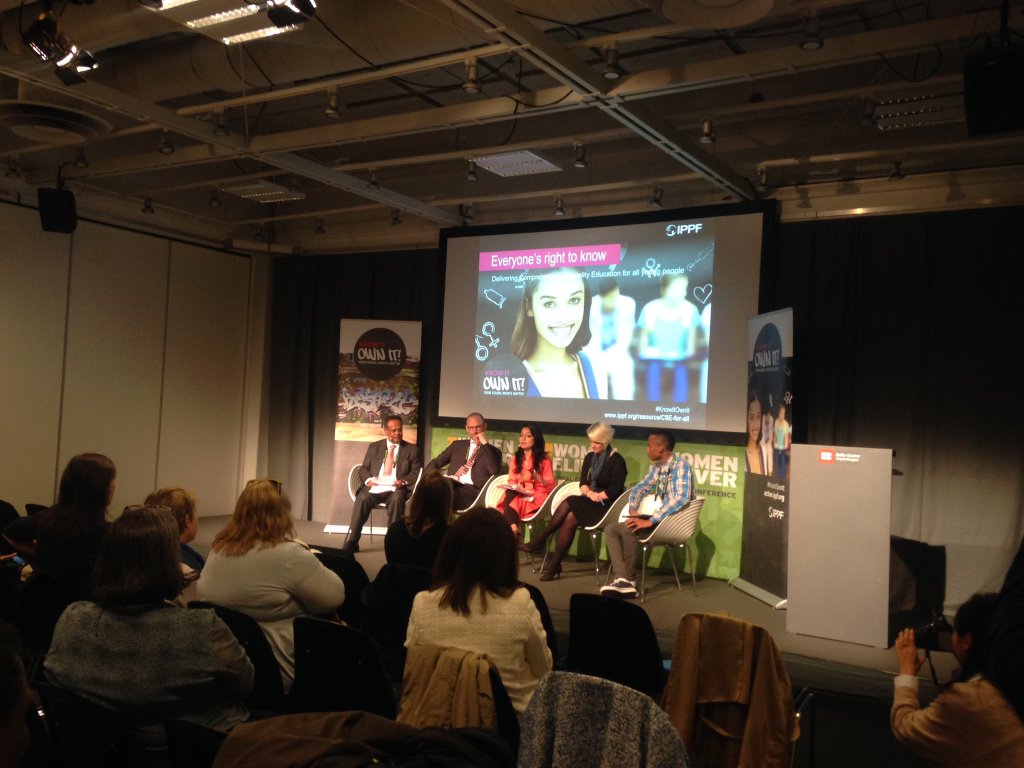
Reaching all young people with comprehensive sexuality education – wherever they are
Here Preethi Sundaram of IPPF, author of a new report on comprehensive sexuality education, talks to DSW’s (Deutsche Stiftung Weltbevoelkerung) communications officer Eoghan Walsh about ‘Everyone’s right to know: delivering comprehensive sexuality education for all young people’. The report is intended to inform advocates and decision makers how to support the sexual reproductive rights of young people around the world.. wherever they are, including those excluded from formal schooling. CSE should go beyond health outcomes, Preethi argues, to cover issues such as gender inequality, consent, empowerment and should challenge myths around sexuality education. The report is available here

How to educate about abortion: A guide for peer educators, teachers and trainers
How to educate about abortion: A guide for peer educators, teachers and trainers, has been developed for trainers and educators who want to deliver workshops or training on abortion to young people, especially those training young peer educators. The guide includes key terms, instructions for facilitators as well as specific activities that educators can use. We also published a summary of this publication:

Adolescent parenthood and mental health problems
by Doortje Braeken, Senior Advisor on Adolescents, Gender and Rights Adolescent parenthood is associated with a range of adverse outcomes for young mothers, including mental health problems such as depression, substance abuse, and post-traumatic stress disorder. Adolescent mothers are also more likely to be impoverished and reside in communities and families that are socially and economically disadvantaged. These circumstances can adversely affect maternal mental health, parenting, and behaviour outcomes for their children like was discussed before. I am not a midwife or an expert in Maternal Care Health (MCH). My background is in sexual and reproductive health programming for adolescents and young people, with a focus on girls. And I have to be honest, most colleagues who work in the area of Adolescent Sexual and Reproductive Health (ASRH) are not so focussed on young pregnant girls or mothers; we are more obsessed with the prevention of pregnancy and seem to lose interest the moment a girls gets pregnant. To the ASRH world, it seems that each young girl that becomes pregnant is a failure. Although we all believe in a life cycle or a life course approach it seems that we have made pregnancy as the cutting of point of work with young people. Most international discussion on adolescent childbearing focus mainly on the medically hazardous issues and complications and the emotional aspects of pregnancy are hardly ever mentioned. I remember in IPPF we organized an international meeting some years ago on girls’ empowerment under the title Girls decide. We had workshops and of course we discussed issues like gender inequity, education, prevention of pregnancy etc. We also had a workshop on girls: Who want to get pregnant. The reaction of some of the participants was astonishing. They said that this was not appropriate because girls shouldn’t get pregnant. And that tells us a lot. The Sexual and Reproductive Health (SRH) and Maternal Care Health programmers/providers are often in different worlds, with each their own professional values, standards and approaches and that doesn’t help the young pregnant girl or young mother, especially if she has mental health problems. Young girls are often unseen in their communities; are seen as a burden have little power over their own lives and their sexuality. Most adolescent girls who give birth for the first time, do this with sparse knowledge, health care, and support. Too few young women are empowered enough to access critical sexual and reproductive health services. Compared to older women, many adolescent girls are more likely to give birth without a skilled attendant, which further compounds their risks and will certainly not help when they suffer emotional or mental health issues. In many predominantly patriarchal societies (South Asia and Africa), the customary thought of people is that "girls are born to be fed throughout their lives" and "boys are born to earn and support the whole family". This thought is reflected through discriminative behaviours of people towards girls, also during and after their pregnancy. We know that in some parts of the world suicide is one of the main causes of adolescence mortality; often caused by SRH issues including pregnancy. So there is a great need to address the emotional and mental health aspects of teenage pregnancy, not only for the young mothers but also for their children. But also in western societies young pregnant girls and teenage mothers face plenty of challenges, from dealing with the shame and stigma of an unplanned pregnancy to finishing school and finding employment. But many must also deal with the challenges of mental illness. Researchers have found that twice as many teen moms are at risk of developing postpartum depression (PPD) as their older counterparts. And nearly three times as many adolescent girls with mental illness get pregnant as adolescents without a disorder. According to a survey of 6,400 Canadian women published in the journal Paediatrics in May 2012, the highest incidence of postpartum depression occurred among girls age 15 to 19 – at a rate twice as high as PPD in mothers older than 25. The stigma of teenage pregnancy can be a barrier to recognition and treatment and we as adolescent SRH programmers should be much more aware of that. Gloria Malone, co-founder of #NoTeenShame, a social media campaign to raise awareness of the shame and stigma faced by teenage mothers says ‘ According to society, pregnant and parenting teens must be punished and used for political prevention campaigns, instead of being treated as the fully human individuals that we are." Girls age 15 to 19 with a diagnosis of a major mental illness, such as bipolar disorder, depression and schizophrenia, are almost three times as likely to give birth as adolescents without mental health issues. When adolescent girls with mental illness become mothers, they may find it "very, very difficult to parent a child in a healthy way," especially if there's a history of trauma or abuse and breastfeeding may feel inappropriate and too intimate," according to Simone Vigod, researcher at Women's College Hospital in Toronto. - Supporting teenage mothers with mental health issues can also bring opportunities for prevention. A pilot study at Women & Infants Hospital of Rhode Island found that an intervention program which included good reproductive health counselling cut the incidence of postpartum depression in teen moms by half. What are recommendations for improvement? In the ASRHR community we are working hard to address the SRH rights of young people., and these should include the rights of young pregnant girls and young mothers. We believe all young people under 18 years should enjoy the full range of human rights, including SRH rights. The importance and relevance of some rights change as a person transitions from infancy to childhood to adolescence; these are the dynamics between autonomy and protection Therefore, the rights of young people must be approached in a progressive and dynamic way. Often people talk about protection of young people more than autonomy. A general and vague notion that children need ‘protection’, broadly, can be counterproductive. Protection is actually about challenging power – protection shouldn’t be about restricting young girls’ agency, but rather protecting and promoting their agency by recognising and addressing the unequal social contexts in which children are embedded. It is the unequal social position of young girls in relation to adults that gives rise to protection needs. For us, it is about empowerment of young women and girls, whether they have chosen to prevent pregnancy, to end their pregnancy, or be pregnant or a young mother: they all need support to be literate about SRHR, have the confidence and competence to choose for prevention of pregnancy, abortion or for pregnancy. It is also about our own values as programmers ,educators policy makers and health providers; what are our values on teenage pregnancy; we need to ask ourselves, how will we react if our teenage daughter or cousin gets pregnant when she is 15; what do we want for during and after her pregnancy? This will help us to from our ideas how can we prevent and/or address emotional and mental health issues during and after pregnancy; how can we work together to ensure that girls get pregnant when they choose to, without force because of early marriage, without being discriminated or neglected or without being forced into a transition from an adolescent world to an adult world . What will we do for young girls after pregnancy; even if there are policies they can go back to school, the reality is different; they often cannot go back at all or to another school they were in before their pregnancy, because again of fear of discrimination, bullying and self- stigmatization. Some recommendations Individual: self- care/empowerment : young pregnant girls need to be well informed about protecting their own health and their babies to be; they need information and support to make a health plan; need post -natal care/information etc. on emotional and mental health issues.; prevent second pregnancy if they want Father/Intimate partner/Family: need information how to support adolescent; send her or accompany her to health facilities; help to prepare child birth; support her when baby is there Community: need to support by addressing stigma and discrimination; arrange financial support during pregnancy; advocate having special facilities for young mothers; ensure that young mothers can go back to school etc. Health care providers; need to know the specific risks of early pregnancy; can arrange prompt transfer to emergency care; give medical , mental and emotional support before, Policy makers; developing SRH policies for young people. It should not only address the risks of sexuality and young people, should not only look at prevention in education and service delivery; it is about giving equal attention to girls who choose to become pregnant or who are pregnant both in education and service delivery We need much better collaboration and synergy between professionals from the ASRHR, RH and MCH worlds; get rid of the pillars and start communicating and collaborating But most of all, listen to young people, involve them and give them a voice to express their needs and wants We need to support young pregnant girls and mothers helping to them in balancing parenthood with their own needs, and helping them create better chances for their children. We need encourage self-expression and help young parents deal with difficult emotions by challenging feelings of loss, low self-worth and lack of ability and give them back agency over their own lives for their own heath and that of their children.

Everyone’s right to know: delivering comprehensive sexuality education for all young people
This report is intended to inform advocates and decision makers about how to support the sexual reproductive rights of young people around the world. It argues that comprehensive sexuality education is critical for young people to realize their rights.
Global comprehensive sexuality education: “too little, too late, too biological” says new report
Sex education across the world is ‘too little, too late and too biological’, according to a new report released today by the world’s leading provider of sexual health services. The International Planned Parenthood Federation (IPPF), which works with partner organisations in 170 countries, is calling for all of the world’s 1.8 billion young people aged between 10 and 24 to get universal access to comprehensive sexuality education (CSE). A new report called: ‘Everyone’s Right to Know: delivering comprehensive sexuality education for all young people’ calls for more investment in, and better CSE for the largest youth population that the world has ever seen. IPPF says it is an issue that needs to be tackled urgently as the number of young people continues to rise. “The starting point, and the absolute minimum requirement, is that CSE must reach all young people – wherever they are,” according to the Director General of IPPF, Tewodros Melesse. “We cannot achieve gender transformative change by focusing only on health outcomes. We must equip young people with information about health as well as positive aspects of sex and sexuality,” he added. The report argues that millions of young people are missing out completely on CSE. It says that CSE delivery is often outdated and non-participatory and that teaching staff are not adequately trained and content focuses exclusively on health outcomes, rather than the recognition of rights. Too often CSE is scientifically inaccurate and solely geared to health outcomes. In particular, it emphasizes potential negative health risks, as opposed to seeing young people as sexual beings and recognizing the positive aspects of sexuality. The report also says that the most vulnerable young people, who often find themselves outside the school system, are excluded. IPPF believes gaps must be filled to ensure that CSE is also provided in non-formal settings outside the classroom, reaching the hardest to reach young people. Vesna Turmakovska works with young people with learning difficulties at IPPF’s Member Association in Macedonia. She said: “Sexuality is part of these young people’s lives; they’re sexual beings and they express their sexuality on a daily basis. Some parents were afraid that the very fact of learning about sexuality would encourage their children to have sexual relations. “We explained that it was about giving skills to their children to make them capable of defending themselves from potential abusers. We also explained that they need skills to become more independent in life, and need to be able to make a distinction between friendship and love.” The report demands three things. It calls on government worldwide to deliver high quality CSE that meets the needs of all young people in and out of schools. Secondly, governments, civil society organizations and health providers must make sure teachers, educational institutions and individuals who deliver CSE in both schools and non-formal settings are trained sufficiently and are confident in delivering sexuality education in a way that is positive and non-judgmental. Finally, educators and civil society should work with communities and parents to build support for CSE as well as a culture that supports choice and respect for young people and their sexual and reproductive health and rights. This report says implementing high quality CSE inside and outside schools is a necessity for governments worldwide, not a political choice. It says that to ignore the education of young people, to restrict their choices, to limit access to life-saving services and to deny their happiness Notes to editors: For more information please contact a member of IPPF’s communications team. Marek Pruszewicz, Director of Communications [email protected]+44(0) 7740 631769
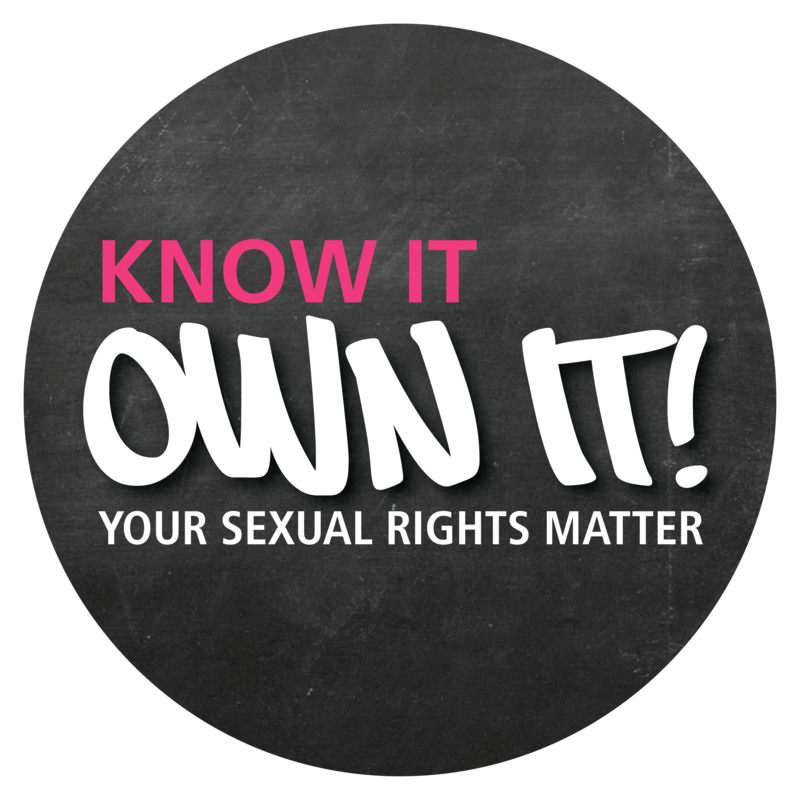
Interactive report: Comprehensive Sexuality Education
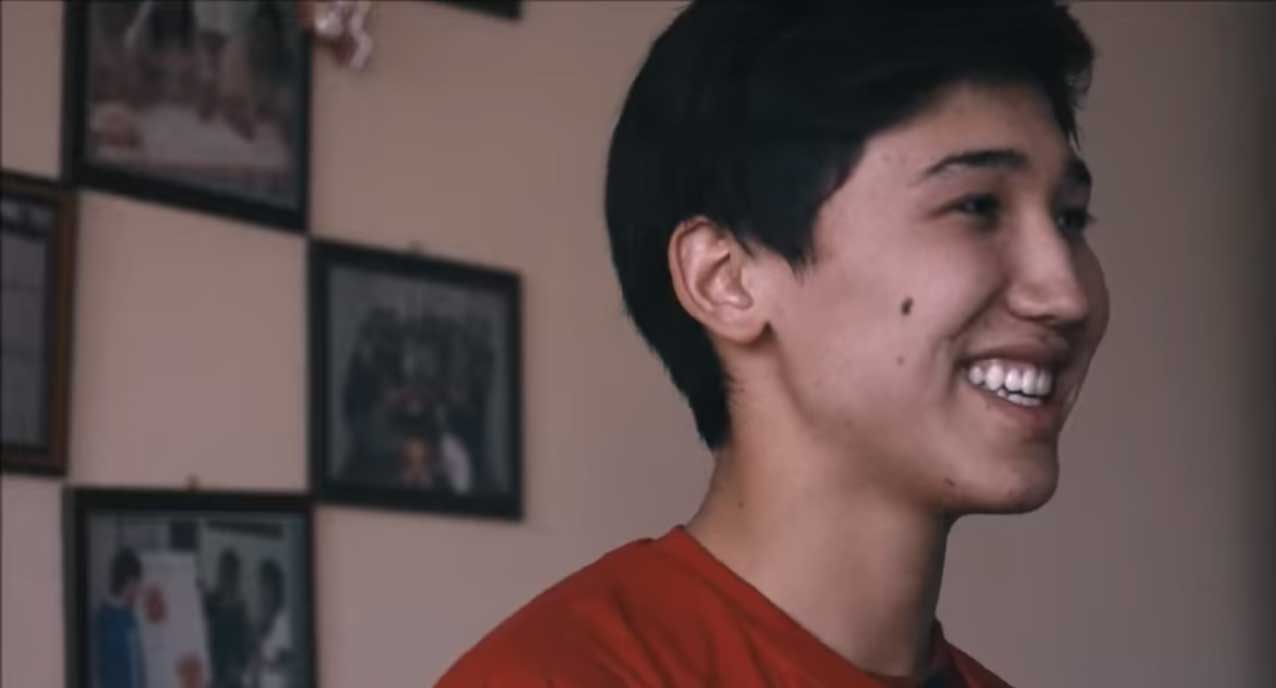
It's not shameful, it's your health!
Uluk is 16 and has been volunteering with the Reproductive Health Alliance of Kyrgyzstan for 4 years. I tell other young people: "We have to care for our own reproductive health - no one else will. I'm asking you: get involved with your reproductive health, NOW. There's nothing shameful in knowing about it; it's shameful NOT to know about it." There are million of volunteers like Uluk at IPPF's Member Associations who are having a tremendous impact on the lives of other young people in the communities. You can get involved today, just find your local IPPF Member Association.
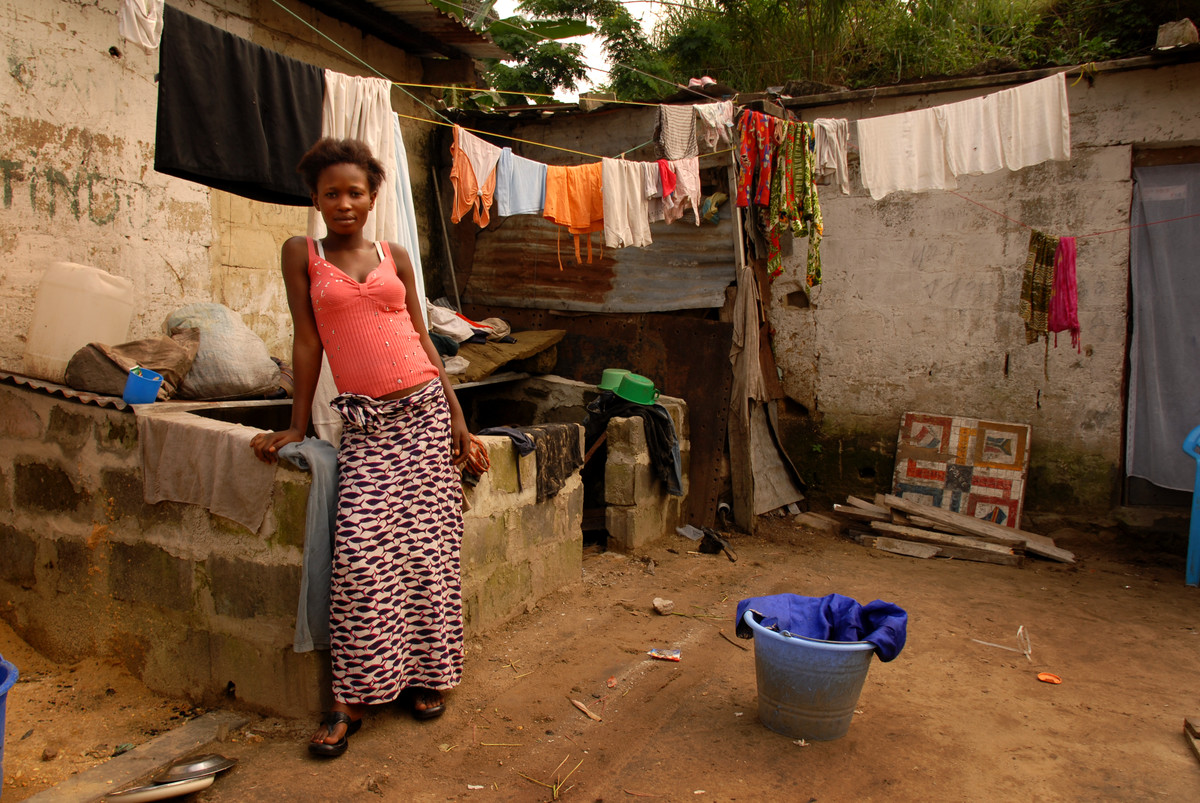
Progress on realising the SRHR promise to African youth at CPD49
Today at the 49th meeting of the United Nations Commission on Population and Development in New York, IPPF’s Director General, Tewodros Melesse spoke to a full room as part of a side-event panel addressing the topic of young people in Africa. The side-event was chaired by South Africa’s Ambassador Kingsley Mamabolo who deftly steered the discussion. The first panellist was UNFPA’s Regional Director for East and Southern Africa, Dr Jullita Onabanjo. She spoke about the importance of the Addis Ababa Declaration on Population and Development for the region. The Declaration was agreed in October 2013 as part of a series of regional reviews feeding into the overall review of progress on the Programme of Action of the International Conference on Population and Development (ICPD). The Declaration, agreed by African Governments, sets out a series of commitments to action, including on sexual and reproductive health, comprehensive sexuality education, data collection and governance: http://icpdbeyond2014.org/pages/view/6-africa Dr Onabanjo called for African governments to share their national experience and learning arising from efforts to implement the Addis Declaration. She looked forward to a platform for this exchange which would also support monitoring of progress on the Declaration and accountability. She recommended a structured and continuous dialogue to take stock and relate monitoring of the Declaration to broader monitoring of the Sustainable Development Goals. The second speaker, Zane Dangor, Special Advisor to the Minister of Social Development, South Africa, started by sharing shocking stories of young women who had suffered or died because they lacked access to safe abortion services. He also told us how Eudy Simelane, a female footballer from South Africa’s national team, was raped and murdered because she was openly lesbian. Zane explained that the Addis Ababa Declaration provides guidance on what states need to do to prevent suffering and deaths like these. South Africa has enacted hate crimes legislation to protect people like Eudy based on domestic legislation, and international agreements, including the Addis Declaration. South Africa has also established an inter-ministerial committee on Population and Development matters to monitor implementation of local, regional and international agreements. Additionally, South Africa has worked to identify gaps in health systems in relation to provision of sexual and reproductive health and rights services that are free from stigmatization and discrimination. Zane described how particular paragraphs in the Addis Declaration provided guidance to South Africa, citing sections about revision of discriminatory laws and policies; ensuring legal systems comply with international human rights regulations and laws; promulgation and enforcement of laws to prevent and punish hate crimes and to protect all people from discrimination and violence; and operationalisation of the right to the highest attainable standard of health. Pointing out that sexual and reproductive health and rights can never be divorced from the pursuit of gender equality and equity, and the full empowerment of women, Zane stressed that the Addis Declaration builds on existing provisions of the African Union to recognise and promote women’s human rights and that it commits governments across Africa to harmonise national legislation with all the relevant international instruments on gender equality and women’s empowerment. Zane concluded with a reminder that the Addis Declaration recognises that we must not choose between rights and development, and that the one cannot be achieved without the other. He supported references to the outcome documents of the regional review conferences – such as the Addis Declaration – in the final resolutions of the Commission for Population and Development, pointing out that words in this context are windows to our consciousness, so we need to embody the spirit of leaving no one behind and ending violence based on discriminatory laws and practices. The third speaker was Dr Simon Miti, Permanent Secretary from the Ministry of National Development Planning in Zambia. Dr Miti explained that a recently conducted demographic study in Zambia was a real eye-opener. It revealed that Zambia currently has the highest ever number of young people in its population: a clear ‘youth bulge’. This realisation led the government to think about how best to realise the demographic dividend through investing in young people’s health, education, rights and employment. Last year the Government of Zambia revised the national youth policy to improve participation of young people, including in the areas of adolescent sexual and reproductive health. The new National Ministry of National Development Planning was also created to help deliver integrated decision-making and implementation across different policy areas affecting young people. Tewodros Melesse, Director General of IPPF, took the floor with optimism, seeing the Addis Declaration as a sign of progress and emphasising that it requires governments to implement the ICPD Programme of Action at national and regional levels. He urged governments to ensure that teachers and the police, the judiciary, private sector and Ministry of Finance all understand the importance of protective legislation and implementation of the Addis Declaration. He called on donors to be partners for implementation, and on Parliamentarians and the media to hold governments to account. Mr Melesse described IPPF’s contribution as a locally owned, globally connected Federation, working for sexual and reproductive health and rights, gender equality and women’s empowerment in over 170 countries. IPPF provides millions of services to young people and delivers comprehensive sexuality education both in and out of school. IPPF believes in empowering young people, and alongside supporting six regional youth networks, IPPF’s governance structure requires that 20% of Board members, at both regional and global levels, are under 25 years old. Noting that about one in five of the young people in the world today live in Africa, Mr Melesse highlighted the potential of the demographic dividend, urging governments to invest in young people’s health, rights and education, including comprehensive sexuality education. He warned that countries with high youth unemployment and poverty could face social instability and urged governments to support youth leadership. Questions from the floor focussed on comprehensive sexuality education, youth leadership and the role of the media, including new media, in providing accurate, evidence-based information for young people about health and rights. The panel concurred on the importance of these issues. The event ended with agreement that the Addis Declaration contained important promises to the young people of Africa and that while progress was being made more needed to be done to turn words into actions on the ground, and to hold governments to account for implementation.
Pagination
- Previous page
- Page 12
- Next page






